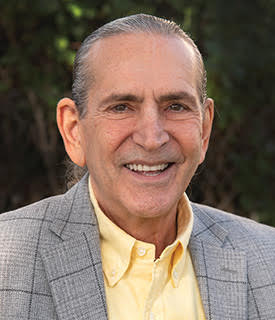A look into internet addiction
The internet is a great resource for learning, breaking physical barriers, and connecting with others from anywhere. There’s no doubt that technology is the way of the future. Our personal mobile devices even provide internet wherever we go because it’s become such a daily necessity and luxury we can’t live without. Yes, the existence of the internet has made our lives more convenient, but do we take it too far? Do we depend on it more than we should be? Has it become a compulsive behavior to always go online? Are we addicted to the internet? Possibly! It’s an actual thing! In 2014, the DSM handbook of psychological disorders included internet addiction as a potential disorder needing further investigation.
There are people who can’t seem to control their internet use. They resemble physiological, neurological and behavioural signs of addiction. In 2014, the DSM (the psychologist’s handbook that details all the known psychological disorders) was updated, which proposed Internet addiction as a potential disorder that required further investigation.
So what are users addicted to, the internet itself or what their activity on the internet? We can see additions to online pornograpy, gambling, social networking, and video gaming. This would be considered an addiction to the online activity; however, limitless web surfing can be addictive within itself with blogs, Youtube, and researching our every question.
There are several studies looking into internet addictions and its effect on the brain. Studies show there’s a no link between the actual excessive use of the internet with reduced brain volume. However, those who displayed symptoms of addiction and an inability to control their internet use actually had less brain matter volume in the right frontal pole - an area of the brain associated with poor decision-making, addictive behavior, and willpower. Some people can actually be prewired to be have internet addictions.
Having instant access and responses are very pleasurable and unlike reality. This satisfaction could also be addicting. A lot of this internet and social media hook has a lot to do with the technology age we live in today, it’s become a way of life. Always reaching for our devices and jumping online, there’s a connection to our inability to be alone with our own thoughts and self entertainment. It’s become a process of constant interaction, whether it’s used positively or negatively, some of us depend on it. This in itself is addicting to some.
If you or someone you know might be struggling with addiction of any kind, please contact Crownview Medical Group to get some advice from a trained medical professional who can talk you through it. Addiction can hold us back from being our optimum self.
Source:
https://www.psychologytoday.com/blog/mind-change/201504/is-surfing-the-internet-addictive
Thrill seeking and addictions
Whatever we’re addicted to, it sends us surging on a high into euphoria. Of course this thrill spike makes us feel good, which is why we get hooked. It’s that feeling we crave. But why do we crave it? Is it because we aren’t getting these spikes from our everyday lives without it? Is that the only we experience these types of highs? Or do we just prefer these types of highs because it doesn’t measure up to the everyday high?
This isn’t far from true. We could be genetically prewired not to be stimulated by everyday pleasures which lead us to seek the thrill outside ourselves. There’s a dopamine receptor known as D2 receptor. When the d2 receptor population isn’t normal, we see problems with areas like attention, motor control, motivation, and addiction.
D2 receptors are developed while we’re in still in the womb. However, the DRD2 gene which is responsible for growing these receptors has a variant (allele A1) that cause a reduction in the number of D2 receptors. Allele A1 gets passed down to offspring who usually end up struggling with addiction. This explains how addiction seems to run in families. Of course, our life experiences and our ability to cope still have an influence addictive behaviors and our life choices.
Those with fewer D2 receptors tend to be less excited about achieving goals in life or being able to find the thrill in everyday life. Their reward system doesn’t give them much of a buzz. These people fill that void with hyper-exciting rewards or highs from drugs, alcohol, gambling, etc.. They feel unenthused with life and the addictions is a way to engage with life. So in other words, addiction is more of a side effect to having fewer D2 receptors.
If this resonates with you and you relate to it or know someone who might relate to it, please reach out to a medical professional. If you are in the southern california area, please contact a medical professional at Crownview Medical Group for advice on healthy approaches to finding the thrills in life.
Sources:
https://www.psychologytoday.com/blog/addicted-brains/201308/when-the-thrill-is-gone-reward-deficiency-syndrome
Addiction as an hourglass
Dr. Marc Lewis has shared interesting insight about the lives of addicts resembling a general hourglass shape. How so? Well to start off, each addict starts off with their own unique background. Each person has their own blend of families, hometowns, childhood upbringing, education, personalities, etc.. This wide range of life elements that contribute to someone’s life experience would be represented in the hourglass’s wide upper half. This is what determines everyone’s individuality and unique lives.
When addiction begins to take hold of a person, their life begins to narrow. All addicts share this in common, whether it’s alcohol, cocaine, or even food or pornography. The dynamics that broadened their lives start fading out and life narrows in on their addiction. The anxieties, depression, and lack of excitement in their lives are now sugar coated by their addiction. However, that sour coating will eventually lead to more anxieties and struggles. Now everything seems to revolve around their addiction. This becomes life.
Once they start to feel fed up with that life and how it makes them feel, realizing they’ve become a slave to their addiction, the glass begins to widen again. This is symbolized by the wide lower half of the glass. Their life experience starts to open up, including more varying factors. Addicts are no longer focused one thing, they’re allowing themselves to experience and be influenced by so much more. This is recovery; they’re restoring the dynamics in their lives, reviving their uniqueness, and discovering creativity.
This experience is something most addicts can relate to. However, there are those who never reach the widened bottom of the glass. This is difficult for loved ones to witness and experience. It’s hoped for all addicts to reach that widened lower half, but if you or a loved one is struggling within the narrow middle of the glass, please consider reaching out for help from a medical professional. Some people need a little help getting there.
If you’re located in the southern California region, please contact a medical professional at Crownview Medical Group for advice and treatment. Crownview Medical Group specializes in Individual Case Management and Addiction treatments.
Source:
https://www.psychologytoday.com/blog/addicted-brains/201210/the-hourglass-shape-addiction
Cravings Explained
Sometimes cravings can be so strong! It’s not always easy to resist. In fact, some people seem to be so strong in controlling their cravings while others struggle and eventually give in. Why is that? Why do we crave in the first place? Some people have said the root of cravings are feelings of incompleteness. In other words, needing to fill a void. Others have said it is triggered by psychological or emotional pain, craving something to make you feel better.
Well listen, both are true. Giving into cravings deliver a satisfying “fill” which may relieve pain and bring happiness and completeness. The truth is, we’ve been doing this since day one as infants. As babies, we cry and crave for our mothers and her breast milk. We know we need something outside ourselves to feel whole, satisfied, comforted, and secure. So when we give into cravings at eat foods, drink alcohol, take drugs, we are reminded of these comforting “whole” feelings. As humans, we live with frequent desire.
Here’s a look at the science behind cravings. Our brains have an area of the brain that is responsible for all our motor plans, waiting and competing for us to act upon them. This is normal and helps to maintain psychological flexibility. So here comes dopamine. Dopamine suppresses our weaker plans and augments the strongest of plans in this part of the brain. What it’s doing is narrowing the competition and zooming in on one plan. Now our brain went from all sorts of potential actions to only one goal. Now our motivation is focused on that one thing only!
We can’t forget about cues. Cues have a way of triggering more dopamine which strengthens that narrowing process. And this is why we might get an extreme immediate craving for cookies upon smelling the fresh baked aroma. We also have internal cues as well; our memories can also trigger more dopamine.
Of course, the cravings get stronger as keep pumping out dopamine by giving into each craving. Our brain is literally being programmed to crave more and intensify the urgency. As we chase cravings, they continue to chase us, and now we’re trapped running in circles. So the more we give in, we are building the promise of relief.
It’s hard to resist cravings, and only gets harder the more we give in. Being aware of how cravings work helps us to understand what’s going on and lessens the spell it casts upon us.
Of course, our bodies physically can become dependent and addicted to substances which also trigger cravings. If you or a loved one struggles with addiction, please contact a medical professional at Crownview Medical Group for advice and treatment.
Source:
https://www.psychologytoday.com/blog/addicted-brains/201202/the-science-craving
How to help a friend with bipolar disorder
When a loved one is diagnosed with bipolar disorder, it may be difficult to understand at first. What does it mean? What do I do? How should I respond to their mood swings? Well, don’t feel bad because many others are wondering the same thing. Those with bipolar disorder experience mood swings that take them through sudden bursts of highs and lows. You want to love and support your loved one, so what’s the best approach?
Here are some ways we can help a friend or family member with bipolar disorder.
Learn about it
Make an effort to educate yourself about bipolar disorder. Learn the facts! The term gets thrown around too often and too lightly, making it widely misunderstood. Common misconceptions turn into false stereotypes and unfair prejudices. So being educated helps to be more understanding of our loved ones and what they live with.
Compassion vs. pity
There’s a fine line between “I’m sorry for what you have to go through.” versus “I recognize your challenges and I’ll be here to support you.” Both seem like caring words, which they are, but those with bipolar need support and understanding more than sympathy.
Don’t say “calm down” or “cheer up”
When someone is in an manic high or a depressive low, they won’t hear such comments. It’s difficult responding to someone in the midst of an extreme mood swing. Even if they are having an explosive episode, you need to keep calm and ask them how you can help. Or suggest the two of you take a walk and get some fresh air.
Always be patient
Remember that the disorder, and the behavior that comes with it, is never intentional. Be patient when their behavior may seem irrational to you. It’s not a character flaw or weakness, in fact, there could be biological contributing factors such as genetics and brain structure.
Listen and stay connected
Listening is helpful for the both of you. While you’re lending a supportive receptive ear, you’re learning more about them and their needs. Some with bipolar feel isolated or abandoned due to their mood swings and insecurities. Of course, if they start talking about self harm or suicide, inform their therapist immediately. Gestures like a hug or bringing cookies help to stay connected.
Don’t give up on them
It’s no easy walk in the park and it may be a lifelong struggle, but don’t give up on them. They need a friend and your support. You love them for who they truly are, which is not the disorder, it’s just another facet to who they are.
If you or a loved one is struggling with bipolar disorder, please contact a medical professional at Crownview Medical Group for treatment and advice. Crownview Medical Group specializes in mental health disorders and case management treatments.
Sources:
https://www.psychologytoday.com/blog/where-science-meets-the-steps/201503/11-ways-help-friend-bipolar-disorder
Are genetics linked to sensitivity and resilience
The same way people are different, so are our life experiences and upbringing during our development years. There is a connection between addiction, violence, and other unhealthy behaviors, in relation to a difficult upbringing or environment. What’s interesting is the varying degrees of resilience seen among different individuals.
For example, there can be 2 women who were sexually violated as youths. One woman turned to alcohol to cope with the trauma, which eventually developed into a serious addiction. While the other woman focused on going to college and pursuing a career as a therapist for women and children coping with damaging sexual experiences. Both experienced the same traumatic experience with equally damaging effects. Why did we see a stronger resilience to move forward in one woman and a more self destructive path for the other?
One idea is that maybe genetics plays a part in swaying our sensitivity and resilience.
It turns out that there’s actually a gene variant, NR3CI, that is found in children that are more sensitive to their environments and more vulnerable to stress.
“This genetic marker is part of the glucocorticoid receptor gene NR3C1 that influences the activity of a receptor to which cortisol binds and is directly involved in the stress response.”
Comparing these children to orchids, they need close nurturing and attention to blossom in a stunning flower. These children have the potential to slip when life gets rough. Those carrying this gene variant are seen to be at higher risk in developing psychological problems by age 25 if not cared for properly. Some of these problems include substance abuse, aggression, and social disorders. They need empathy, social connection, and nurturing to keep them upright. If taken cared of and nurtured through, their future is full of success and beauty.
In regards to those without that particular gene variant, they are compared to the likeliness of dandelions. These flowers, well technically weeds, can grow through the roughest conditions and still manage to push their way out and thrive - like pushing it’s way through the cracks of a concrete sidewalk. These children we would say tend to be more resilient and stronger.
By no means does this mean dandelion children are better than orchid children. But rather, it’s a better awareness on how to approach or treat a child coping through stress. What kind of nurturing does a child need? Children could be born as orchid children, but over the years develop the resilience of dandelions. This is of course due to nurturing and support.
If you or a child experiences a traumatic life event or unhealthy environment, please contact Crownview Medical Group for professional medical advice. The sooner orchid children get the type of nurturing they need, the better. Crownview Medical Group specializes in case management treatments.
Sources:
http://onlinelibrary.wiley.com/doi/10.1002/pam.21811/abstract
https://www.psychologytoday.com/blog/the-athletes-way/201501/how-do-genes-sway-the-sensitivity-or-resilience-child
Signs you might have an addiction
When talking about addictions, we usually assume drug or alcohol addictions. However, we can be addicted to so many different things without realizing it because they’re a part of our everyday lives. So it tends to go overlooked or underestimated. In fact, it’s the addictive behavior we see commonly with social media, watching Netflix series, eating, or exercising. Addictions aren’t only serious if it’s pertaining to drugs or alcohol, anything can be taken too far.
Here are some questions to ask yourself to see if you’re addicted to something that might be unhealthy:
How important is it?
Does it take priority over other things in your life? Is it an important part of your sense of self? Does it prevent you from doing other things? Do you feel like your thoughts and time are consumed by it?
Is it rewarding?
Do you feel good when you do it? Does not doing it make you feel worse? Does it make you feel in control? Even if this is something considered as something good, remember too much of a good thing can turn into a bad thing. Of course we all want to feel good as often as possible. Just keep it at a healthy level, don’t overdo it.
Need more?
Do you find yourself doing it for extended periods of time, longer than you planned? Do you feel like it’s not enough and you need more? Are you carving out time just for “a little bit more?”
Causing disruption?
Does it cause disruption in your life and relationships? Does it make you anxious when you don’t do or have it? Do other things in your life start to feel inconvenient?
Reverting?
Is there something you want to change but keep putting it off, like dieting? “I’ll start on Monday since it’s the beginning of the week.” And don’t. Are you making up excuses and reasons to continue what you’re doing?
If you answered yes to these questions regarding a behavior, you might be living with an addiction. Too much of anything is never a good thing. We need to strive for a healthy balance in every aspect of our lives. It’s beneficial to look into the reasons why you may be compulsive or addicted to certain behaviors. Often times there is a hidden emotional or psychological trigger or void that we’re unaware of.
If you would like to restore that balance in your life, please contact Crownview Medical Group and get professional advice. Medical professionals specialize in providing guidance and therapy for addiction.
Sources:
https://www.psychologytoday.com/blog/hope-relationships/201411/6-signs-youre-addicted-something?collection=162646
Is there a link between bipolar and intelligence?
There’s a common association between creative artists and mental health disorders, such as bipolar, depression, and schizophrenia. We see this in Edgar Allen Poe, Ernest Hemingway, and Vincent Van Gogh. There are many past and present creative geniuses who claimed to mental illness gave them some sort of edge to their work and perspective. Some actually show signs of it in the work itself. We see others proud of their illness, even protective, identifying so closely with that mindset because of it’s unique influence on how they portray the world.
Is there any shade of truth to this? Do mental health disorders give the creative genius an advantage? Are creative minds more prone to developing such disorders? If so, why? What’s the connection here?
The scientific connection between mental illness and creativity remains foggy. The cognitive neuroscience community is divided on whether or not an actual scientific link exists. In regards to studying and testing, it’s difficult to define and measure creativity, as it’s such an abstract idea.
However, there seems to be evidence that links bipolar and intelligence. In the British Journal of Psychiatry, lead researcher James MacCabe wrote, “We found that achieving an A grade is associated with increased risk for bipolar disorder, particularly in humanities and to a lesser extent in science subjects. These findings provide support for the hypothesis that exceptional intellectual ability is associated with bipolar disorder.”
Of course, an artist’s creative process and experience should be respected. On the other hand, their mental health and stability is also very important. Even though there may be a link between the two, intelligence wouldn’t disappear due to improvements in mental health. We see this with creative geniuses who don’t struggle with bipolar, schizophrenia, or depression. Mental illness doesn’t affect every artist or creator, the same way everyone with bipolar is creative.
This is a very interesting idea that needs to be looked into more closely. As mentioned, it’s divided between scientific medical professionals, but there seems to be an interesting coincidence here. So is it just that, a coincidence or is there more to it?
If you or a loved one is suffering from bipolar and need professional guidance, please contact Crownview Medical Group. We specialize in individual case management and mental health treatments.
Sources:
https://www.psychologytoday.com/blog/ending-addiction-good/201503/is-there-link-between-intelligence-and-mental-illness
Cell phone addiction tips
With immediate access to all our digital needs within our hands, it’s pretty easy to become dependent on our phones and mobile devices. What do you when you or your child is too dependent on them, possibly having a cell phone addiction? Here’s some tips to help you unplug and get back in touch with the real world.
- Have lunch or meet up with friends somewhere - Much of our communication happens via messaging or phone calling. Let’s try having more face-to-face contact with our loved ones. There’s nothing like enjoying each other’s company and sharing an experience.
- Set some boundaries - set some screen-free time aside. Either leave your phone in your bag, in another room, or face down on the table. Detach from your device and focus on something else.
- Do something with your free time - Sometimes we just look at our screens because we’re bored. If that’s the case, you just need something to do. When you have free time or find yourself idle, reach for a book, go on a hike, or do an activity with a friend.
- Phone stacking - when you’re out with friends, make an agreement to stay in the moment with each other and spend quality time by stacking your phones in a pile in the center. If you’re out to dinner, there can be a rule where whoever grabs there phone first pays!
- Set your ringtones and alerts - Get creative with your ringtones and alerts. Set specific tones for specific people or alerts so you know what needs your immediate attention and what can wait. That way you’ll be able to tell if your client is calling or you got a Facebook comment.
- Self talk - If you find yourself distracted thinking about your phone while listening to someone talking to you, give yourself a mental self reminder, “I’m listening to this person right now, stay in the moment.”
- Wear a watch - We use our phones a lot to check the time. Wear a watch so it removes that need to glance at your screen.
If you or someone you know might be struggling with addiction of any kind, please contact a medical professional at Crownview Medical Group. We are trained professionals offering specialized treatments and therapy to help you live life at your optimum best.
Sources:
Residential treatment for heroin addiction
When it comes to recovery and addiction treatments, patients have the option of residential rehabilitation or out patient programs. Long term success between the two have been debated by many. It truly depends on the individual and what works best for them. Australia’s National Drug and Alcohol Research Centre performed a study looking at heroin rehabilitation outcomes over the course of 11 years.
The study looked at 615 heroin users, checking in with them at 3, 12, 24, and 36 months and 11 years laters. The goal was to look at drug use patterns, mortality, remission, overdose rates, suicide attempts, criminality, and mental and physical health over time. By the last year of the study, 10 percent had died, almost half were still in some form of treatment, and those still using heroin fell to a quarter. With less drug use there was less crime, less risk-taking and better overall health. In the end, residential rehab treatment for heroin addiction resulted in positive long term outcomes and was the only factor significantly associated with better physical health.
At the end of the first year of the study, residential and outpatient treatments seemed to be equally effective. But looking at the long term outcomes, residential treatments did result in the best long term outcomes. For whatever reason, heroin users seem to benefit from a prolonged controlled environment surrounded by support from peers and professionals.
This is not to discount outpatient treatment, but maybe there’s something specific to the residential environments that heroin users seem to respond to best. If you or a loved one is struggling with heroin, or another addiction, please contact a medical professional at Crownview Medical Group. We offer both residential and outpatient treatments for addiction.
http://www.ncbi.nlm.nih.gov/pubmed/25619110
Food addiction or actual hunger?
Of course, when we’re hungry, we want to eat. But what if we aren’t really hungry, but just want to eat? That’s okay right? Well, yes, but not if it gets out of hand to the point you’re eating past being comfortably full. Are you wanting to eat because you’re bored? Or celebrating a job promotion with friends? Or maybe you’re not sure if might actually be hungry or bored?
Here’s the deal. When we can’t hear physical hunger cues, we become more susceptible to giving into emotional eating. Some call it binge eating and others call it food addiction. What ever you call it, it’s basically faux hunger. This can get out of control for some people, eating past being full and consuming an excess unhealthy amount of calories. Some people experience a complete loss of control, not being able to stop or never feeling satisfied. This could be a way of filling a void.
Here are some tips to identify emotional hunger vs. physical hunger:
- Emotional hunger comes abrupt, suddenly. Physical hunger builds gradually, not jumping to feeling starved.
- Emotional eating is mindless. This explains the amount of popcorn we eat in a movie theater.
- Emotional hunger is mental, fantasizing about foods or suddenly craving something after seeing it on TV. Physical hunger is felt, in the stomach, with growling or nausea.
- Emotional hunger is a craving for a specific food. Physical hunger is craving for food in general.
- Emotional hunger is hard to satisfy, making it hard to stop. Physical hunger is satisfied, feeling full.
To test if you’re physically hungry or just emotionally hungry, wait awhile and see if you’re able to manage. If you’re extremely hungry and obsessively thinking about it, chances are, you’re just emotionally hungry. Also, think about the last time you ate. Has it been awhile?
Here’s a tip if you’re struggling with cravings and emotional hunger. Drink some chamomile tea, something comforting. Sometimes feeling comforted is enough to fill a void we’re trying to fill. There’s a possibility you might be bored, so switch your attention onto something else. Maybe exercise! Sometimes doing something pleasurable will get your mind of that hunger.
If you or a loved one is struggling with emotional eating or food addiction, please contact a medical professional at Crownview Medical Group for some advice.
Sources:
https://www.psychologytoday.com/blog/finding-cloud9/201412/are-emotions-causing-you-overeat
Is it a cell phone addiction?
We can unanimously agree that technology has become a vital part of our modern lives. There’s a high chance that your cell phone is lying within reach, if not already in your grasp, assuming you’re like the average technology dependent person today. There’s a tugging compulsion to look at our mobile screens throughout the day, even if we just glanced at it to check the time 5 minutes ago - would that be considered a cell phone addiction?
We depend on cell phones to stay in contact with friends and loved ones via text, messaging, emails, and phone calls. Our curiosity and nosiness can get the best of us when we feel impulsed to scroll through our Facebook and Instagram updates every 20 minutes. Or maybe it’s our instant access to the internet that we’re hooked on. Recipes, DIY projects, photography, videos, games, news updates and current events...check the weather, get directions to the restaurant, look up reviews for that restaurant...we do it all on our phones!
Even though our phone is practical, useful, and makes life more convenient, is it possible to have a cell phone addiction? Can we survive without our phones? Would we ever be without our phones anyway? It’s an interesting complex where our phones keep us all connected yet disconnected. Disconnected, how so? Well there’s a study that reported texting and cell phone conversation being the most common ways teens socialize with their peers outside of school, surpassing face-to-face contact. By experiencing life through our devices, it’s preventing us from experiencing life firsthand.
We should take some time to unplug and be a part of life - interact with people face-to-face, spend time in nature, go somewhere, move our bodies - recharge our spirits. Balance should be the ultimate goal we always strive for. Balance between what’s real and what’s digital is important.
Dopamine highs and addictive withdrawal symptoms have been associated with cell phone use similar those of cocaine, heroin, and other substances. It’s important to monitor our attachment to our devices to maintain healthy use.
If you or a someone you know might be struggling with addiction of any kind, please contact a medical professional at Crownview Medical Group. We are trained professionals who specialize in addiction treatments and therapy to help you live life as your best self.
Sources:
Internet addiction or escape hatch?
Can the internet be an escape hatch or an addiction - maybe even both? Nowadays, we see children with their faces lit up by the glow of their iPad screens. It’s pretty amazing to watch children - practically babies - navigating through apps and their games. As great as this may be, could we be taking it too far? Some children scream and throw tantrum for iPad time. Teens, college kids, even adults are glued to their screens.
The internet is a portal of endless options. From playing an alternate life in a fantasy gaming world, staying updated on someone else’s life, online shopping...Whatever it may be, the internet can definitely be an escape hatch. We disconnect from our reality by jumping into another, by access of the internet. We use internet for leisure, entertainment, and to ease the anxieties of our everyday.
What if we take it too far? To the point we are always jumping to our escape hatch. Sometimes even struggling to escape from our escape hatch. We just might be looking at an addiction. While it’s debating among some, internet addictions resemble symptoms of substance addictions. Internet addiction is similar to addictions we see to food, shopping, or even sex. These are considered behavioral addictions.
Here’s how internet addictions affect our brains: researchers have discovered shrinkage in several small areas of the brain, in some cases up to 10-20 percent. Some of these areas reduced inhibition of inappropriate behavior and decreased goal orientation - in other words, decision making abilities. This is why we struggle to get off the internet when we know we should. However, on the bright side, research scans have also shown us an increase of brain density in areas associated with memory formation and information retrieval.
Internet addiction is still being looked into. As research continues, we should all try to be aware of addictive behaviors and symptoms to maintain a balanced healthy lifestyle. If you or a loved one, struggles with addiction (whether it’s behavioral or substance), please contact Crownview Medical Group to speak with a medical professional for guidance, advice, and treatment.
Sources:
https://www.psychologytoday.com/blog/hope-relationships/201503/why-the-internet-is-so-addictive
http://www.scientificamerican.com/article/does-addictive-internet-use-restructure-brain/
Cravings and Food Addiction
Food addiction is an interesting subject because food is something we need to survive. So unlike drugs and alcohol, we actually still need to keep eating food even while getting a handle on our cravings.
For some people, it can be difficult to distinguish between cravings and hunger. What makes them different anyway? Well, cravings feel more like demands or requirements, which so happens to be the actual root of the word. The word is meant to denote an urgent desire or longing more intense than experiencing hunger. However, it’s natural for our bodies to crave foods as a way to seek nutrients our bodies need.
There’s actually a neurological difference between “liking” and “wanting” foods. To “like” food is a reflection of it’s pleasurable taste and aspect of eating which is connected to the opioid system. On the other hand, to “want” food is a more motivational desire which is dopamine-driven. The latter is what we know as cravings.
There also seems to be a cultural difference in terms of cravings. Not every language has a word for craving. And looking at North America in particular, women craving chocolate seems to be more prevalent. Women also seem to have more cravings than men, especially before their menstrual cycle. While women tend to crave more sweets, men lean more towards the savory. Women experience strong cravings especially during pregnancy.
However, when cravings lead to uncontrolled compulsive seeking and eating regardless of negative health or social consequences, it becomes an addiction. Even if food addictions seem harmless compared to drug and alcohol addictions, it’s still unhealthy behavior patterns. It could also be filling a void of a deeper issue that should be worked out.
If you or a loved one is struggling with food addiction and would like to find the root cause of it, please contact Crownview Medical Group to talk with a medical professional who will team up with a nutritionist to reach optimum health.
Sources:
https://www.psychologytoday.com/blog/the-gravity-weight/201501/food-cravings-those-torments-expectation
Benefits of Intensive Outpatient Addiction Treatment
When recovering from addictions, there are different options for treatment. Most people are more familiar with residential inpatient treatment facilities. Some who struggle with addiction are turned off by “rehab” centers and committing to being “away” for extended lengths of time. If this resonates with you or a loved one seeking sobriety, there’s another option! We’re talking about intensive outpatient addiction treatments.
The name is pretty self explanatory. It’s a treatment program that can be arranged outside a facility, wherever you’re located. Here are some benefits of intensive outpatient programs:
INTENSIVE OUTPATIENT ADDICTION TREATMENT
MAINTAINING RESPONSIBILITIES
If individualized program permits, individuals can maintain their presence at work or school while getting treated. Without the restriction of being at a facility, people can continue fulfilling their responsibilities.
SUPPORT OF LOVED ONES
Being able to return to the comforts of your own home allows people to be surrounded by the love and support of their friends and family. For some people, this is aids in their recovery because being away from their loved ones for extended lengths of time can be a distracting heartache.
ALREADY APPLYING SKILLS IN THE REAL WORLD
Often times, the real test for recovered addicts is the return home. They achieve sobriety in a focused distraction free facility with the support of professionals and fellow patients, but struggle once they leave that environment. Hitting the real world that’s full of tempting triggers can be challenging and cause anxiety. On the other hand, outpatient programs give individuals the opportunities to resist, cope, and strengthen urges while living around triggers.
Intensive outpatient addiction treatment is strictly monitored, coordinated, and structured by professionals guiding an addict through recovery while working around their current lifestyle. It builds self regulating skills and self control immediately since patients are recovering in the depths of reality.
If you or a loved one is seeking sobriety and optimum strength and health, please consider addiction treatments that work for you - residential (inpatient) or outpatient programs. If these benefits appeal to you, intensive outpatient addiction treatment may work best.
Contact Crownview Medical Group for further information. We have trained professionals specialized in helping you recover and live your life as your best self. We offer both residential and outpatient programs that are individually customized to achieve optimum health and general wellness.
Benefits of Residential Addiction Treatment
When it comes to addiction treatment, individuals have the option of residential programs or intensive outpatient programs. For some, this may be confusing. What is the difference? Which works better? Do they have different results in long term sobriety? Which works best?
First of all, receiving treatment is a great decision to make, regardless if it’s at a residential facility or outpatient program. It’s the first initiative to restoring strength and stability and that’s great!
Here’s a look at the benefits of residential addiction treatment:
RESIDENTIAL (INPATIENT) TREATMENT
STRUCTURE:
Residential treatment is a 24 hours a day, 7 days a week program providing a daily schedule. For some, this may seem too redistricting but this routine allows each person to focus on improving their health. This works best for those who struggle resisting cravings when they experience moments of down time. Having clear boundaries and structure helps some rebuild willpower and personal commitments and goals.
COMMUNITY:
Unfortunately, there’s a stigma to addiction which intimidate some people from reaching out for treatment. Recovering addicts sometimes feel misunderstood and isolated, maybe even judged or pressured. Residential programs surround patients with professionals and fellow patients who can understand, relate, and empathize in a safe environment. Being around others who can share stories of struggle and success through the recovery process can be very supportive for most people. Some also find it more comforting to have someone available during tough moments, whether it’s a fellow patient or professional guide.
FOCUSED ENVIRONMENT:
Patients are able to stay in a focused environment free from distractions such as work, school, friends, and family. A patient is able to completely focus on themselves, healing and strengthening. Aside from freeing individuals from distractions, focusing solely on recovering helps them turn their focus away from addictions and back to their well being. People are able to move on from unhealthy habits and build new healthy ones.
Not to disqualify intensive outpatient treatment, because it does work for some, for those who have been unsuccessful, please consider an inpatient program. The ultimate goal is to achieve sobriety and restore optimum strength and health. If you can benefit from these factors, it will most likely be the best option for you. For further information and arrangements for residential or outpatient programs, contact Crownview Medical Group - with locations in San Diego, California. We have trained professionals specializing in treatments and therapy to help you live life as the best you.
Benefits of Case Management Treatment
Recovering from an addiction is no easy walk in the park. It’s a struggle that challenges an individual daily by throwing triggering temptations around every corner. The line is drawn by the resistance to these triggers; to give in or not to give in? When an addict becomes dependent on a substance, the abuse deteriorates one’s ability to resist. Most of those struggling with addiction can’t do it alone.
Because this toxic dependence affects a user chemically, emotionally, mentally, physically, and spiritually, the best support would come from a team of professionals who can individually focus on healing a specific part of a person’s general well being. This approach to treatment enables for a more complete recovery by restoring strength and stability to the entire self, which helps a person resist urges and triggers after treatment.
Through a comprehensive clinical assessment, focusing on specific areas of needed improvement, professionals are able to develop and implement a highly customized action plan providing wrap-around services including psychiatry, various therapies, nutrition, life skills, and case management.
Treatment that only focuses on one aspect, doesn’t always result in the long term sobriety. This is because there’s more to a person than just one facet. And addiction doesn’t only affect people in one way, they are completely affected - mentally, emotionally, and physically.
Addiction also doesn’t affect everyone the same way. Therefore, conventional treatment isn’t successful for everyone. Each person looking to restore optimum health deserves to get optimum attention and support, looking at their entire well being.
Getting support from a team of professionals who are able to focus on these specific areas, allow them to identify components that need attention, not leaving anyone with any weak points to fend for themselves in the outside world outside of treatment.
If you or a loved one are looking to get sober and healthy, addiction free, and restore strength and stability, please consider individualized case management. Crownview Medical Group has a team of medical professionals specializing in case management treatment for residential and outpatient treatment programs.
Hooked on Addiction
Drugs serve as psychological painkillers for addicts. They’re both a solution and a consequence to psychological pain. Those who come from adverse childhood environments tend to struggle with navigating and controlling negative emotions in adulthood. Drugs, alcohol, and other destructive behaviors and addictions help them cope - although ironically it’s more damaging than helpful. Even if addicts are aware of the consequences, the desired high is more appealing.
Some people are looking for a stimulant while others may be looking for a depressant. Different substances have a different effect. When someone is anxious and stressed, a depressant becomes more appealing. When someone is bored and empty, a stimulant would be an option for a pick-me-up. What ever the reason, that’s the internal source of self medicating. People choose to reach for something that would help them regulate emotions in some way. Understanding the origins of self medication helps professionals know how to better treat individuals for addiction.
What some abusers forget, or disregard, is the fact that self medicating by abusing substances is a momentary fix that drags on long term effects. When the high wears off and the moment passes, they are reminded of reality and turn back to another round of self medication. As this addictive cycle continues, addicts are stacking up long term damage.
Even though the substance itself has addictive properties, if we don’t heal the psychological and emotional source, the addict will continue to struggle with addiction. Some users have a more challenging time bouncing back when recovering from addiction, which is why interventions and addiction services with a medical professional are highly encouraged.
If you’re located in the San Diego area, contact Crownview Medical Group for advice and intervention and addiction services with a medical professional. We have offices located in Carlsbad and Coronado.

References:
What does drugs do for you. (2014, November 10). Psychology Today. Retrieved December 15, 2014, from http://www.psychologytoday.com/collections/201410/the-science-addiction/what-does-the-drug-do-you
Kick Depression and Stress with Acceptance
Feeling stressed out or depressed are not really goals people intentionally seek out. In fact, if we don’t manage these emotions, it can be very unhealthy. There’s one simple trick that can make a huge impact on getting a handle on these emotions. One word: acceptance.
Just one switch in your attitude can make the world of a difference. If we accept a person or situation as it is, it will have less of an affect on us. It’s the attitude of “it is what it is,” knowing we can’t change things and won’t get worked up over that fact. It’s not ignoring or disregarding our feelings, it’s just a perspective. We still recognize our emotions, but look at the situation differently so it doesn’t affect us negatively.
This goes along with the Buddhist belief of pain and suffering. Pain is inevitable but suffering is optional. The way we approach and deal with pain is all about perspective and resilience. Suffering is an unhealthy weight that can spawn from mismanaged emotions. Suffering is stress we create for ourselves.
Depression can be a challenge to pull ourselves out of at times, but a shift in perspective can make a huge difference. Yes, it’s easier said than done, but if you don’t want to suffer then choose to practice acceptance. And you will feel the force lifted off your shoulders. You will no longer feel a struggle or resistance in your life. You will feel the flow of situations around you, rather than situations happening to you.
If you struggle with depression and coping with stress - and practicing acceptance - please seek professional advice. If you are located in Southern California near the San Diego region, please contact Crownview Medical Group to talk with a medical professional. We have offices located in Carlsbad and Coronado.


Finding Everyday Pleasures, Depression, Addiction
Ever notice how some people seem happier than others? Or how some people are more prone to being bored easily? This is because some people have a different capacity to find pleasure. This incapacity to enjoy the small things in life can be seen in individuals who struggle with depression and addiction. It’s unclear as to why some people have a lower capacity than others - a child development issue that leads to developing addictions or depression?
If a person has lost the capacity to feel pleasure, optimistically, what was once there can be regained. On the other hand, if it was never there, it will need to be learned from scratch. Looking at someone’s capacity for pleasure can also be used as a health marker. Understanding this might spark someone to appreciate more and develop a sense of curiosity. Some people may consider going for a hike, visiting a museum, volunteering for a cause, or joining a new dance class - all therapeutic experiences to expand our capacity for pleasure.
Dr. Mark Banschick says, “a patient’s weak capacity to enjoy life’s small pleasures leads inevitably to the necessity to feel something at any cost.” Without the ability to enjoy small things, people tend to be more compelled to the danger of high stimulus pleasures and their destruction.
Rather than turning to high stimulus pleasures which opens the potential for addiction and depression, please seek professional advice. If you are located in the Southern California area near/within San Diego, contact Crownview Medical Group to talk to a medical professional. Services for depression, addiction, and interventions are available.

References:
Everyday Ecstasy. (2014, December 9). Psychology Today. Retrieved December 15, 2014, from http://www.psychologytoday.com/blog/the-intelligent-divorce/201412/everyday-ecstasy
Healing Power of Writing
It’s never a good idea to hold things in. Why? Because it can build up within us, growing, or spiral out of control. We need to release the tension. Sometimes wandering alone in a bad neighborhood within our thoughts can be dangerous. We need to let it out, take the weight off our shoulders. Talking to a friend, someone we trust, can be very eye opening - allowing us to see what we weren’t able to on our own. Empathy can also be very healing as well.
But what it you don’t want to talk to anyone, aren’t you left with keeping it in? The answer is, of course not. You can keep it to yourself without keeping it in. Write it down. Well more like write it out. Writing is very therapeutic if you just take the time to do it. When we sit down to write, we slowdown and gather ourselves. As we write, we are thinking. But only as slow as our hands allow us to think. This is where writing becomes meditative.
As we write, we begin to make sense of things. It’s a pretty bizarre and spiritual experience. Almost like you’re in tuned with yourself, hearing your own advice. Look at that, writing can be spiritual and connective as well. It’s literally a moment with ourselves. And just write, don’t worry about grammar or spelling. Just let your thoughts flow and write out whatever comes to mind. You will have moments that shock yourself, when you realize what you’re writing.
Once everything is out on paper, you feel much lighter. Because it’s no longer weight on your shoulders. It’s no longer harbored inside you, brewing. You released the mental clutter through a personal and solo outlet. With the clutter removed, you gain a more enlightened sense of clarity, opening you to the good that’s trying to get to you.
Don’t knock it before you try it. Take a few minutes at the start of your day to write a page or two of whatever comes to mind in that moment. Whether it’s something that has been bothering you for a while or just a random thought that popped up that second, write it down.
No matter what you write about or where you start, you will always end up somewhere else. Whether it’s a personal revelation, answer, or better feelings towards something. Only goodness can come out of it. Experience the healing power of writing - Give it a try!

Approaching a Loved One About Addiction
It’s intimidating for people to approach their loved ones about addiction problems; in fear that the discussion will cause them to blow up or push them away. In a lot of cases, they will react with drastic behaviors such as dropping out of school, abusing substances more, or moving out of the house to retaliate against their concerned loved ones.
However, the dreadful conversation might be very productive, leading an abuser to know realize they have a problem. And the only way to prevent the problem from escalating to severe outcomes is change.
Discussion Guideline for Approaching a Loved One About Addiction
- Make sure your loved one is sober. You don’t want to bring up this discussion when they are under the influence of drugs or alcohol. You want them to be present with you, to understand logic, and to be less likely to get angry, impatient, or dismissive.
- Of course, be sober yourself. As anxious and nervous this discussion might make you feel, you need to be sober and present as well.
- Arrange a time when the both of you can talk alone and uninterrupted. You want to open the discussion to dialogue, for a two-way conversation sharing and understanding each other. You don’t want to have a limit on how long the discussion should go, in case it needs to or does go longer than expected.
- Emphasize your love, care, and concern for their well-being as a reason for this conversation. Don’t scold, judge, or put them down. This is a moment of love and you want them to know that. You want their trust.
- List some changes in behavior that you have observed. Mention your worry and concern if substance abuse is continued.
- Use open ended questions, inviting them to share their side. You don’t want them feeling ambushed or guarded in anyway.
- If they don’t think they have a problem, just give it another try in the future. You don’t want to convince them there’s a problem, you want to let them know that you believe there is one based on observable behaviors.
- Do not speculate, explore motives, or judge. Stick with the main point.
- Don’t expect a dramatic shift immediately. The person might not believe there is a problem. It’s not a quick fix, nor is it easy.
Getting Advice About Substance Abuse
Another point to remember, with certain drugs there are serious risks and withdrawal symptoms when the substance is cut out immediately. Some people will need to detox under the care of a medical professional. Even if detoxification is not needed, a discuss always is.
Please contact a medical professional for advice and patient management. Contact Crownview Medical Group for help from a medical professional specializing in addiction treatment and patient management for long term sobriety.
5 Myths About Addiction
There are many misconceptions and false judgement towards addiction and those struggling with it. Sometimes these myths can undermine addiction treatment as well. When people misjudge addicts, it can carry into misjudging treatment and addiction in general. Let’s clear some things up here.
#1 Addicts are bad people that deserve to be punished.
Yes, with a change in brain chemistry due to long term drug use, addicts may act out: lying, cheating, and stealing to get their next fix. Their priorities, desires, and drive is no longer the same as it once was. This doesn’t mean they are bad people. This erratic behavior is driven by the effects of drugs on the brain and body. We should treat addicts with harsh legal sanctions and judgements, because these people need help not punishment.
#2 Addiction is a choice.
Genetics can play a part in a person’s risk of addiction. Addictive personalities can run in families, increasing a person’s risk of being addicted to harmful substances such as drugs and alcohol. Environmental factors such as family/home life, upbringing, and peers can also have an influence risk for addiction. Brain imaging studies have shown that there are neurobiological differences between a person becomes addicted and someone who doesn’t - this is before drugs are even in the picture. And once drugs are used, it changes the structure of the brain making it difficult to resist impulses.
#3 People usually get addicted to one type of substance.
It’s not uncommon for people to use more than one substance to achieve a more intense high. They may use different drugs at different times or combine them. Others may use different drugs to counteract the undesirable effects from another drug. Polysubstance abuse if found more commonly among males, those who started using drugs at an early age, and teens/young adults. These people are more likely to struggle with mental illness and be more difficult to treat.
#4 People addicted to prescription drugs are different from those addicted to illegal drugs.
Even though prescription drugs are known to be misused, there is still more stigma towards illegal drugs. Prescription drugs are prescribed by a doctor and deemed safe to use as prescribed. However, that doesn’t mean they are safer than illegal drugs. Taking these medications in larger doses or for recreational uses not intended for a medical condition, can have the same effects to the brain as illegal drugs. There is also the same risk of addiction.
#5 Treatment should put addicts in their place.
Even though medically, addiction has been recognized as a chronic illness, those who struggle with it still get mistreated as societal misfits. While some still believe addicts should be motivated by aggressive confrontational or shaming methods, that’s not the healthy approach to treatment. In fact, research has shown that it is counterproductive.
Addiction is definitely a struggle as it is, but it makes it harder when society puts addicts in a lesser category. Because of this, some addicts may feel as if they don’t deserve treatment and sobriety. As if now they have a role to play once declared an addict. It’s like someone thinking they aren’t good enough because people say they are. Putting down addicts as weak, selfish, and criminal is an unhealthy lack of support, another form of bullying. These are people that need help, not judgement.
If you, or a loved one, is struggling with addiction, contact Crownview Medical Group for professional medical advice. We offer treatment and programs for those struggling with addiction and their loved ones. We are located in San Diego, California with offices in Carlsbad and Coronado. Addiction is a serious condition that should be treated by a medical professional.
Reference:
5 Myths about Addiction that Undermine Recovery. (2013, May 14). Psychology Today. Retrieved November 20, 2014, from http://www.psychologytoday.com/blog/where-science-meets-the-steps/201305/5-myths-about-addiction-undermine-recovery
Making Wrong Decisions
Does decision making ever stress you out? When you’re unsure of what’s right or wrong, hoping to avoid the wrong and choose the right? Sometimes these moments can be paralyzing, trapping us in stagnation. Because we can’t make a decision, we go nowhere. We are literally stuck, which can be frustrating.
So then what do we do? Well, first of all, we can’t fear wrong decisions. We have to embrace them. Yes, wrong decisions come with consequences, setbacks, or unwanted results. However, we learn a lesson.
Our ultimate goal in life is to grow. Whether it’s right or wrong decisions, they both move us forward, teaching us a lesson. Even if those decisions could potentially take us in different directions, at least we are moving forward. It’s better than being stagnant and missing out of opportunities to grow. The only difference between right and wrong decisions is that wrong decisions are more challenging opportunities to learn the same lesson. However, it brings more to the table because it also builds character.
So we shouldn’t be indecisive in fear of wrong decisions and obsessing over right decisions. We need to just make a decision, period. Really, it’s just two decision options. More like decision 1 and decision 2. Whoever started calling them right and wrong, was wrong. Because we are just naturally intimidated by “wrong”. And we shouldn’t be.
If we make the wrong decision, we shouldn’t be regretful or disappointed in ourselves either. That’s the worst thing we could do to ourselves - be hard on ourselves. By no means, am I encouraging reckless and careless decision making, we should always learn from the decisions we make. But learn doesn’t mean to put ourselves down. We can learn without that harsh mentality.
Lessons shouldn’t be avoided. Even the ones that come from “wrong” decisions.
Living for Yourself or Others?
Let’s take a couple minutes to evaluate, are you living for yourself or others? The decisions that you make and the way you lead your life, is it validated from within or by an external source. Are your decisions determined by your gut instincts or by outside institutions and others?
It’s an interesting to think about every once in a while, like a temperature check. Am I living for me? Of course, we don’t want to be rash and inconsiderate. We still need to make rational smart decisions. However, the way we live our lives should be validated by the one person who matters, yourself.
Too much of a good thing can become a bad thing. Just like an over valuing external validation could put your own self on the back burner. We all should be living for ourselves while considering others. Not living for others while considering ourselves. And even though the later sounds selfless and noble, we can’t forget about ourselves. Balance is always ideal, but just don’t leave yourself behind.
A lot of us search for validation through not only others, friends and family members, but through the metaphysical and religious institutions as well. This isn’t a bad thing at all, in fact it’s great to believe in something. However, there can be an obsessive point that either blinds us or creates an unhealthy relationship with ourselves. This is something we should avoid.
When it comes to validation from loved ones, of course we want to make them proud. But it can become unhealthy when we are met with the internal conflict between our personal desires and fulfilling their desires. Making them proud always feels great, it’s rewarding. Yet, depending on what personal desires are sacrificed or set aside, it can be a great struggle.
So live for yourself. Seek balance between internal and external validation. But make yourself happy, don’t just think about making others happy. We can’t forget about ourselves. As we’ve all heard before, it’s hard to make others happy when we’re unhappy ourselves.

















































